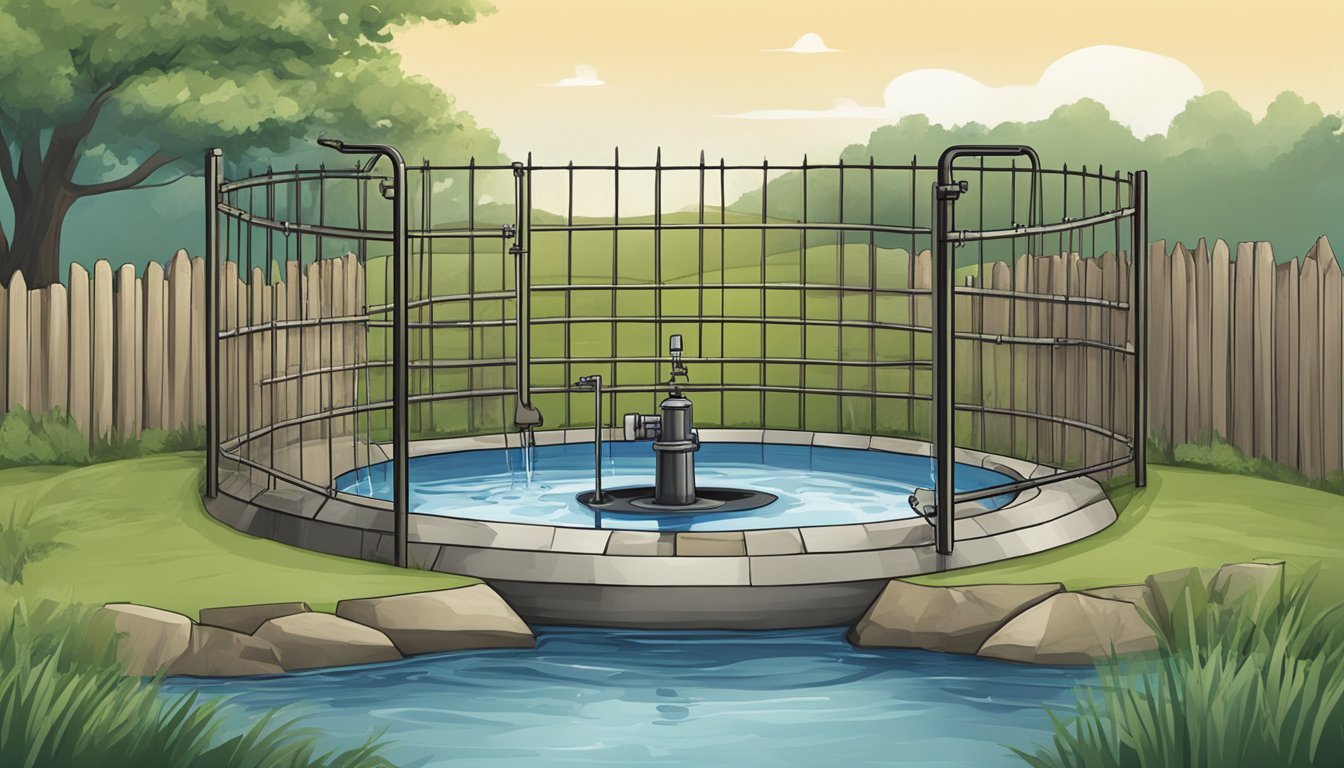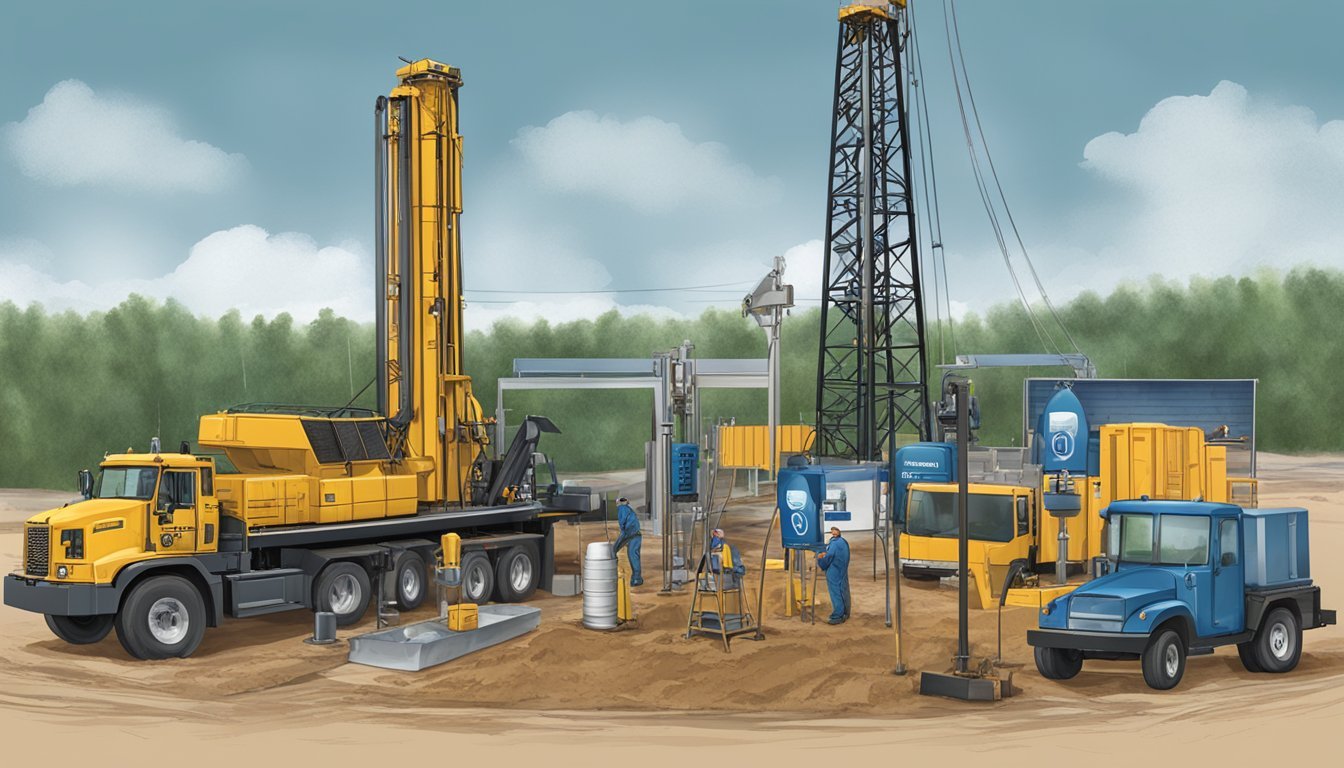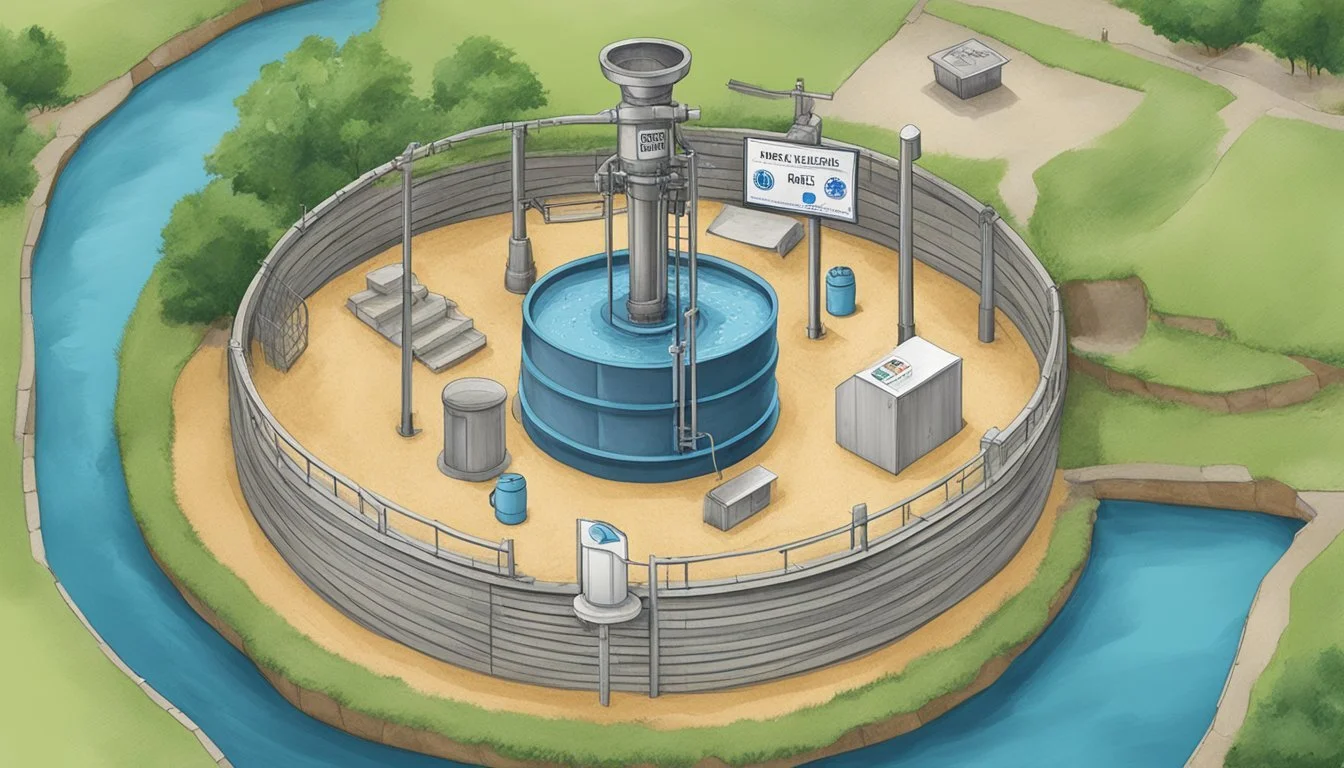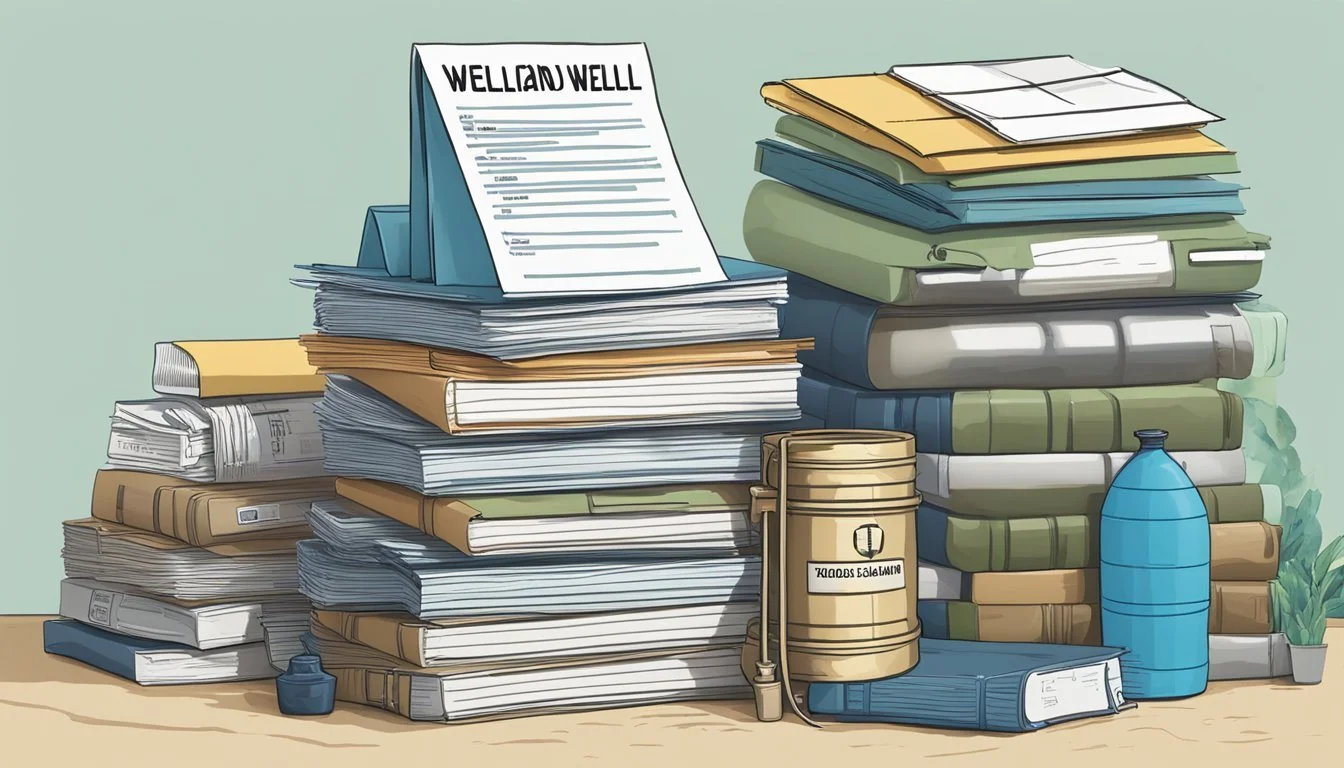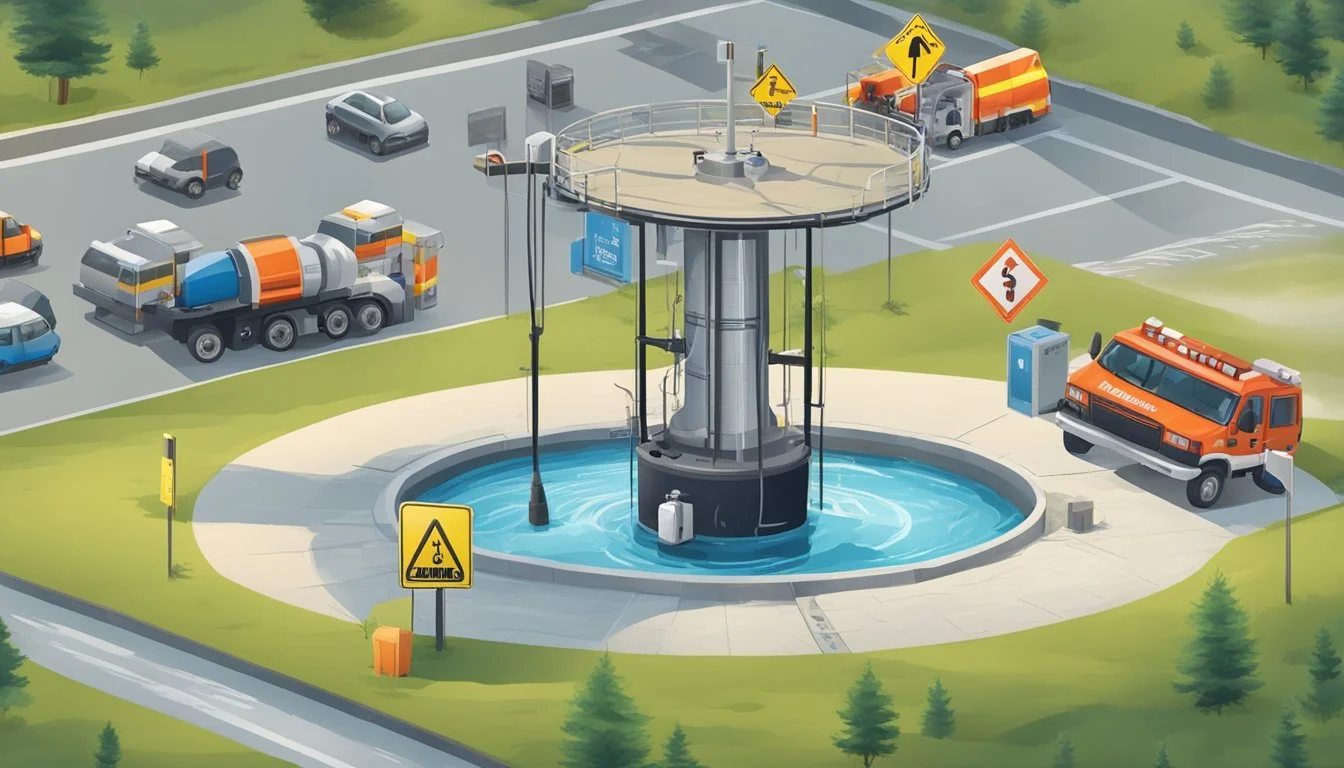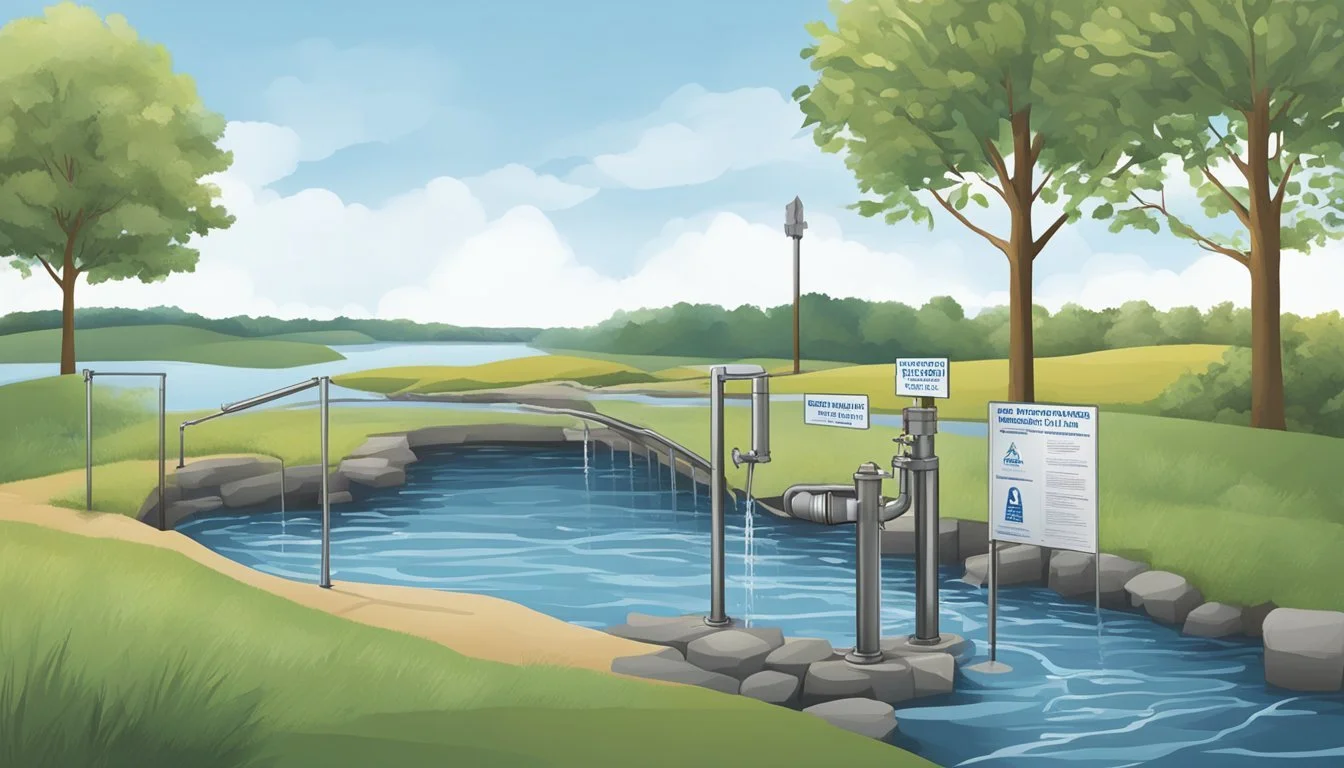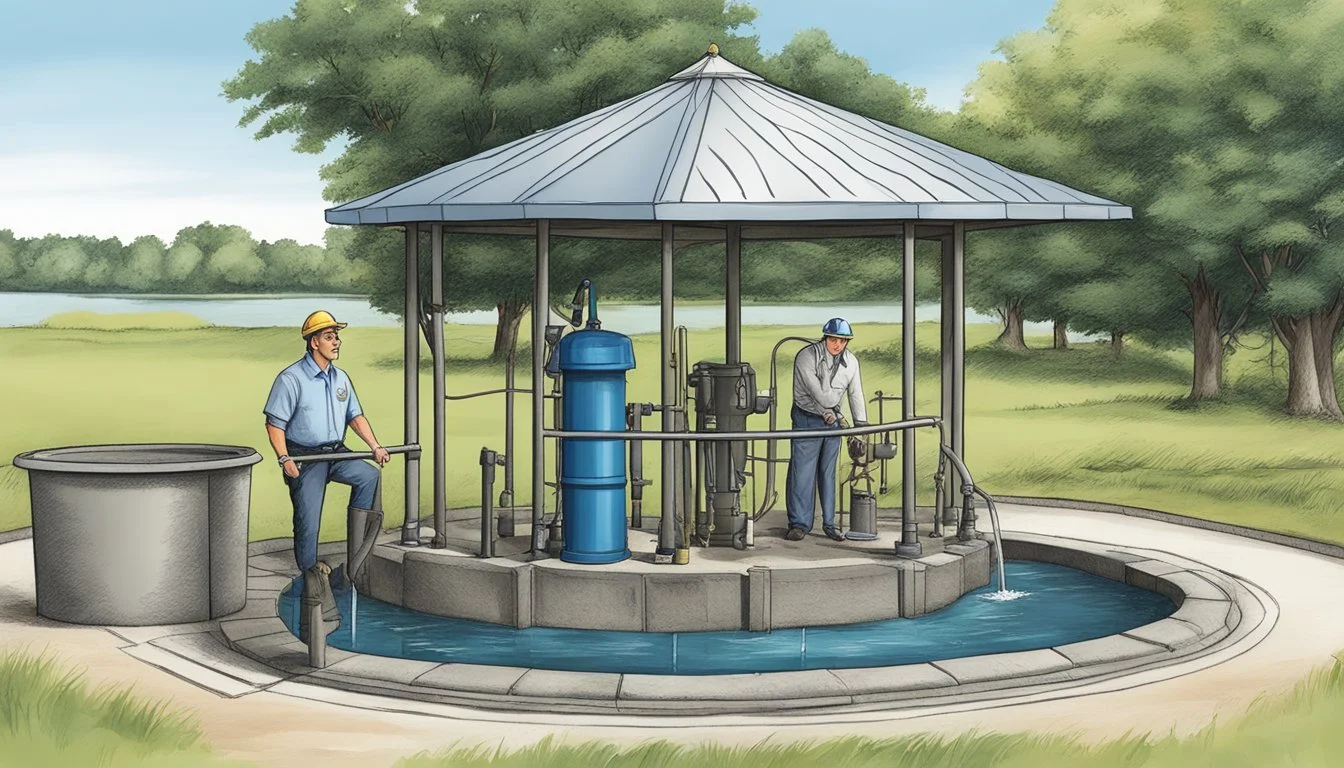Rhode Island Water Well Regulations
Understanding Compliance for Well Owners
In Rhode Island, the stewardship of water resources is taken very seriously, especially considering the state's intricate networks of aquifers and waterways. Water well regulations are designed to protect these precious resources, ensuring that the water quality remains high and safe for consumption. These rules are not just arbitrary mandates; they serve a critical purpose in safeguarding public health and preserving the environment. Through the diligent application of these guidelines, the state ensures that its natural water supplies remain uncontaminated and available for future generations.
Regulatory oversight is provided by various state departments, including the Rhode Island Department of Environmental Management (DEM), which has established a comprehensive set of Rules and Regulations Governing the Construction and Maintenance of Wells. These regulations encompass everything from the proper construction and abandonment of wells to the routine testing of water quality. Moreover, the Rhode Island Department of Health plays a role in the regulation of private wells, licensing well samplers and interpreters to ensure the accuracy of test results, a crucial step in maintaining the safety of private well water.
The water well regulations are a testament to Rhode Island's commitment to environmental protection and public health. They are a clear set of standards that well operators and homeowners must follow to comply with the state's expectations for water use and quality. Through these rules, the state effectively communicates its dedication to maintaining a sustainable and safe water supply for all its residents.
Legal Framework and Authorities
Rhode Island's water well regulations are structured under specific legal frameworks and jurisdictions. This section delineates the roles of governing entities and their interplay in setting standards and ensuring safe water resources.
Governing Bodies and Jurisdiction
In Rhode Island, the Department of Environmental Management (DEM) is instrumental in overseeing groundwater wells. They are the primary authority responsible for the design, construction, installation, and location of groundwater wells. The DEM also defines procedures for registering well drillers and pump installers. Local municipalities may have additional ordinances, creating a multilayered governance structure.
State of Rhode Island's Role
The Rhode Island General Laws grant the state power to enact regulations that guide water supply systems management. The state's role extends beyond regulations, encompassing strategic planning to ensure a sustainable water supply and the protection of aquifers from contamination.
Federal Oversight by EPA
Federal oversight of water sources, including wells, falls under the Environmental Protection Agency (EPA). The EPA establishes baseline standards for water quality and emergency response protocols related to water crises. The agency works in conjunction with state authorities to prevent environmental hazards that could compromise water resources.
In situations of emergency, these protocols become paramount to ensure immediate and effective resolution, safeguarding public health and environmental quality.
Well Construction and Development
Construction and development of water wells in Rhode Island are governed by strict regulations and require the involvement of qualified professionals to ensure the safety and sustainability of groundwater resources. These regulations are in place to protect both the environment and public health.
Construction Regulations and Permits
In Rhode Island, permits are mandatory for the construction of new wells. The Public Drinking Water regulations outline the need for approval from the appropriate state agency before any construction begins. Construction regulations focus on proper siting of wells to prevent contamination, the types of materials and methods used, and ensuring that any water sourced is safe and reliable.
Professional Qualifications
Only licensed and registered professionals are allowed to construct and develop water wells in the state. Pump installers and water filtration contractors are held to high standards that include both training and experience requirements. Rhode Island mandates these qualifications to uphold the integrity of water well construction and to safeguard public health.
Technical Standards for Water Wells
The Groundwater Quality Rules establish technical standards for water wells, including criteria for design, construction materials, and filtration systems. Clear definitions are provided to standardize the construction process and ensure every new well meets the necessary construction regulations. These standards serve as a guide to maintain the quality and sustainability of the groundwater.
Water Quality and Treatment
When considering water quality and treatment in Rhode Island, two critical factors come to the forefront: the identification of contaminants and the methods used to treat water to meet health and safety regulations.
Contaminant Identification
Contaminants in Rhode Island's water systems can range from naturally occurring minerals to man-made chemicals and bacteria. The identification process begins with rigorous testing to determine the presence of harmful substances such as lead, copper, or bacterial contamination. For example, the Rhode Island Department of Environmental Management outlines the regulations for testing the quality of public and private water sources, ensuring that they are free from contaminants that can pose a threat to human health.
Treatment Methods and Maintenance
Once contaminants have been identified, various treatment methods are employed to remove them and maintain water quality. Key treatments include filtration and disinfection to eradicate bacteria, lead, and other harmful chemicals. In public drinking water systems, strict maintenance protocols are required to ensure the continuous delivery of safe drinking water. The Rhode Island Department of State's Groundwater Quality Rules provides guidance on the construction of monitoring wells and remediation efforts for groundwater protection.
Health and Safety Regulations
To protect public health, there are comprehensive safety regulations governing water treatment and quality. This includes standards for lead control, disinfectant residuals, and byproducts as detailed by the EPA's Water Quality Standards. The enforcement of these regulations ensures that risks posed by bacteria and chemicals are adequately managed, and that water systems across Rhode Island consistently deliver high-quality drinking water to residents.
Regulatory Compliance
In Rhode Island, compliance with regulations governing water wells is critical for the protection of public health and the environment. Entities involved in well-drilling and water systems maintenance must adhere to strict monitoring and reporting rules, and face clear-cut enforcement actions in case of violations.
Monitoring and Testing
Rhode Island's regulations mandate regular monitoring and testing of water wells to ensure safety and quality. Well-drillers and pump installers must conduct tests on water samples, adhering to the Rules and Regulations for Well-Drillers, Pump Installers, which stipulate parameters for water quality and the types of tests that must be conducted. The water samples are analyzed at certified laboratories to identify potential contaminants.
Reporting Obligations
Reporting obligations require all public water systems to submit detailed reports of their monitoring results. They create and follow a sampling schedule and have results reviewed by entities such as the Public Drinking Water Program. These reports help the Rhode Island Department of Health to oversee the compliance of water systems with state and federal regulations.
Enforcement and Violations
In cases of enforcement and violations, non-compliance with the stipulated monitoring, testing, or reporting standards triggers specific penalties. The Rhode Island Department of Health has the authority to enforce these rules, and the consequence for any infraction ranges from fines to more severe legal actions. The Public Drinking Water Regulations: Recent Changes for Small Water Systems document provides an overview of the enforcement procedures and the implications for small public water systems that fail to comply.
Well Ownership and Responsibilities
Well ownership in Rhode Island carries specific legal responsibilities and rights. Ensuring compliance with state regulations preserves water quality and public health.
Owners' Rights and Obligations
Well owners in Rhode Island have the right to access and use groundwater for their property's needs, as outlined in the Rules and Regulations Governing the Design, Construction, and Installation of Wells. They are obligated to follow state laws, which mandate that wells meet minimum construction standards to prevent contamination. Owners are also responsible for registering well drillers and pump installers with the state.
Well Maintenance and Repairs
Regular maintenance is crucial to safeguarding the integrity of water wells. Owners should conduct periodic inspections and cleanings. If repairs are needed, they must be carried out by registered professionals in accordance with Rhode Island's guidelines for Well Drillers, Pump Installers. In the event of system failure, it becomes the owner's duty to remediate any issues to prevent adverse effects on the environment and public health.
Closure and Expungement of Wells
When a well is no longer in use, proper closure procedures must be followed to prevent safety hazards and contamination. Rhode Island regulations require a licensed professional to perform well abandonment. Expungement of wells, which is the process of properly sealing and removing a well from state records, is detailed within Rhode Island's Groundwater Quality Rules. Noncompliance may lead to legal repercussions, emphasizing the importance of understanding and adhering to these regulations.
Support and Resources Available
Rhode Island provides a robust framework of support and resources for entities dealing with water well regulations. This support encompasses financial assistance programs, educational initiatives, and comprehensive guides for well owners and operators.
Financial Assistance Programs
The Rhode Island Water Resources Board offers financial assistance to ensure the proper development and conservation of water resources. These programs are targeted at public water systems and business operators, helping them comply with regulations and implement sustainable water practices. Assistance ranges from grants for infrastructure improvements to loans facilitating compliance with water quality regulations.
Education and Outreach
Continuing education is a priority for Rhode Island's water well regulatory framework. Resources like workshops and online materials provide operators with the latest industry standards and technological advancements. The state's persistent commitment to keeping water system professionals informed is evident through ongoing educational programs aimed at enhancing their skills and knowledge.
RIDOH and Smart Well Owner Guide
The Rhode Island Department of Health (RIDOH) supports well owners through the Smart Well Owner Guide, which provides comprehensive guidance to maintain well integrity and water quality. This guide includes best practices, maintenance schedules, and health and safety considerations, forming a critical resource for well owners striving to achieve regulatory compliance.
Critical Incidents and Emergency Response
In the face of critical incidents, Rhode Island’s water well regulations necessitate meticulous emergency responses and robust management strategies, particularly during contamination events and natural disasters.
Response to Contamination Events
In incidents where water quality becomes unsafe due to contamination, Rhode Island has established stringent guidelines to protect public health. Entities must immediately initiate emergency management and contingency plans, which include notifying the public and taking steps to mitigate the contamination. Key actions involve:
Isolating the impacted area to prevent further spread.
Assessing the extent of contamination through rigorous testing.
Implementing appropriate treatment solutions to restore water safety.
Management During Natural Disasters
Natural disasters challenge water supply systems, demanding comprehensive and prompt responses to ensure continued water safety and supply. Rhode Island's approach is two-pronged:
Preparation: Developing and maintaining thorough emergency response plans for scenarios such as floods, hurricanes, and other extreme weather events.
Mitigation: Coordinating with emergency services to address infrastructure damage, such as compromised plumbing systems or fires, and deploying resources for rapid recovery.
By adhering to these protocols, Rhode Island aims to minimize health risks and ensure a reliable water supply in times of crisis.
Policy and Future Planning
In Rhode Island, water well regulations integrate robust planning and strategic control to ensure sustainable water resources for agriculture, while also addressing environmental impacts. These regulations are shaped by a future-oriented vision that considers the evolving needs of the state’s economy and community.
Water Resources and Agriculture
Policies that govern Rhode Island's water wells are crucial for the agricultural sector which relies on consistent and clean water supply. The Rhode Island Water Resources Board plays a vital role in managing these resources, establishing guidelines that assist farmers in accessing water while promoting conservation and responsible usage. These policies aim to balance the water needs for crop irrigation with the necessity of maintaining water availability for future generations.
Environmental Impact Considerations
The state's water policy planning includes a thorough environmental impact assessment to mitigate risks associated with water well drilling and operation. These regulations are designed not only to control the extraction of water but also to preserve the state's natural ecosystems. Measures are in place to prevent contamination of aquifers and ensure that the water table is not adversely affected by agricultural or other industrial activities.
Strategic Planning for Water Systems
Rhode Island's approach to strategic planning for water systems encompasses a long-term perspective to facilitate a resilient infrastructure. The plan outlined in the document, Rhode Island Water 2030, demonstrates a clear set of goals and strategies to provide a safe, reliable water supply. These strategies focus on overcoming challenges such as climate change effects, population growth, and changing land use patterns through adaptive management and innovative governance.
Rules and Guidelines for Private Wells
In Rhode Island, the maintenance and regulation of private wells are governed by specific standards to ensure water quality and safety.
Private Well Standards and Coverage
Regulations apply to all private drinking-water systems in Rhode Island that are not classified as public water suppliers. These rules and regulations dictate the necessary actions for testing, documentation, and compliance when drilling new wells or modifying existing ones. They are set by the Office of Private Well Water Contamination and include guidelines on well construction, required testing for new wells, and protocols for transferring home ownership.
Well Care and Maintenance Guidelines
Proper well care requires regular maintenance and adherence to health and safety protocols. Homeowners must ensure routine testing for contaminants, with specific tests mandated for new wells and when a property is sold. The Rhode Island Department of Health recommends that experts licensed in Private Well Sampling and interpretation handle testing to guarantee the accuracy of results. In addition, homeowners should observe any changes in water quality, consulting professionals and retesting the water if any discrepancies arise. Guidelines also provide measures to be taken in case of water system contamination, outlining steps for remediation or treatment as necessary.
Administrative Provisions
Rhode Island has established comprehensive regulations to manage the construction, installation, and maintenance of water wells. These rules incorporate materials relevant to well design and outline a structured process for appeals, as well as provisions for the periodic update and severability of regulations to ensure ongoing relevance and legal soundness.
Appeals Process
Individuals or entities affected by decisions or orders under Rhode Island's water well regulations have the right to appeal. The specific steps for initiating an appeal must be carefully followed according to the guidelines set out by the Department of Environmental Management (DEM). Appellants are advised to review the Rules and Regulations Governing the Administration and Enforcement of the Well Drilling Contractors’ Licensing Law, which clearly dictate the timeframe and format for appeals to ensure their request is considered valid.
Regulation Updates and Severability
The regulatory landscape for water well standards in Rhode Island is subject to change, as incorporated materials and scientific knowledge evolve. To adapt, regulations may be updated or amended over time. Each clause within Rhode Island's water regulations is crafted to be severable. If any section, word, or standard is found to be invalid by a court, the remainder continues in full force, preserving the integrity and enforceability of the remaining provisions.
Frequently Asked Questions
The regulations surrounding water wells in Rhode Island are designed to ensure the safety and quality of groundwater. Here are some of the most commonly asked questions regarding well drilling, maintenance, and regulation.
What are the legal requirements for drilling a new water well in Rhode Island?
In Rhode Island, the legal requirements for drilling a new water well include obtaining the necessary permits, following specific construction standards, and ensuring the well is drilled by a licensed well driller. Detailed regulations are available through the Rhode Island Department of Environmental Management.
How often is water quality testing required for private wells in Rhode Island?
Private wells in Rhode Island should be tested periodically to maintain water quality. The Rhode Island Department of Health recommends testing for bacteria annually, nitrates every five years, and other contaminants like lead or pesticides as advised. It is crucial for well owners to stay informed about the health of their water by contacting the DOH laboratory.
To what extent does the Rhode Island Department of Environmental Management (DEM) regulate water wells?
The DEM plays a significant role in the regulation of water wells, overseeing the construction standards, well completion reports, and licensing of well drillers to ensure that groundwater resources are protected from contamination. For detailed rules and regulations, the DEM's regulations page offers comprehensive information.
What is the minimum distance a water well must be from property lines in Rhode Island?
Rhode Island regulations require that water wells have a set minimum distance from property lines, septic systems, and other potential sources of contamination. This distance varies depending on the specific circumstances of each site. It is best practice for property owners to consult the official regulations for well-drillers and pump installers for precise measurements.
Are there any specific water filtration requirements for wells in Rhode Island?
While there are no state-wide water filtration mandates for private wells, certain local jurisdictions may have specific requirements. Moreover, water testing might reveal contaminants that necessitate the installation of a filtration system to ensure safety. Information on well drillers, pump installers, and water filtration requirements are outlined by the Rhode Island Contractors' Registration and Licensing Board.
How can I access the Rhode Island well water database?
The Rhode Island well water database can be accessed through the Water Resources Board, offering information on water wells across the state. This database is a valuable resource for homeowners, researchers, and policymakers. For specific data and maps, the RI Water Resources Board's Frequently Asked Questions section provides guidance on how to obtain this information.

